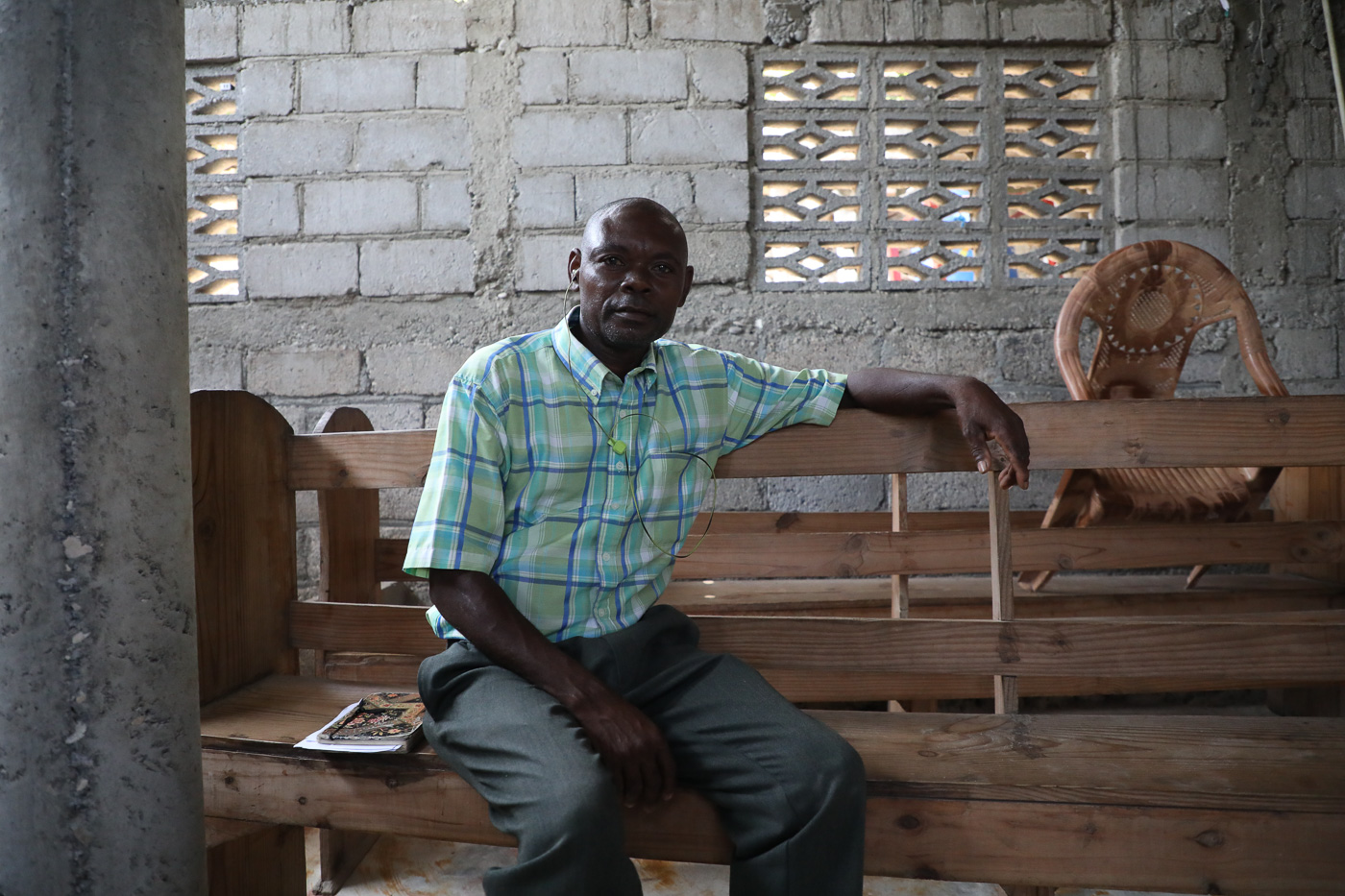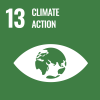Prenelise is one of 800,000 people in need of life-saving assistance following last month's earthquake. Photo: IOM/Monica Chiriac
Haiti, 13 Sep 2021 - Ninety-year-old Prenelise used to sit outside watching her grandchildren play, including on the morning of 14 August when a 7.2 earthquake destroyed her house. She was knocked out as it came tumbling down. “My daughter pulled me out and brought me to safety,” she says. “I don’t know where I would be without her.”
Prenelise had often heard people talk about earthquakes and even experienced a few, but none as devastating and traumatic as last month's – one of the strongest to ever strike Haiti. The town of Cavaillon in the Sud department where she lives, together with the departments Grand'Anse and Nippes, have been particularly affected. Prenelise’s house is one of 52,000 destroyed, along with 77,000 other houses that were severely damaged.
Like many other community members in Haiti, Prenelise was born and raised in the house she called home for decades. The quake robbed her of belongings, including furniture, dishes and other trinkets she valued and had kept safe for years, hoping to give them to her granddaughters.
The earthquake destroyed 52,000 houses and damaged another 77,000, along with essential infrastructure such as roads and bridges. Photo: IOM/Monica Chiriac
The family of four now lives in a makeshift shelter which Prenelise’s grandchildren built from salvaged bits and pieces. Too proud to ask her neighbours to host her, she is hoping soon to receive support to build a new house.
Thousands of other Haitians are displaced and taking refuge in their neighbours’ houses, makeshift shelters, chapels or informal displacement sites. Even before the earthquake struck, thousands of people had already been displaced by gang violence, while others were made homeless by this year’s tropical storms.
While some have found immediate comfort with family or friends, others are overlooking safety concerns and have returned to sleep in their own houses. “We are more comfortable here and we still see these two walls that are still standing as our home,” says 85-year-old Similiane, Prenelise’s neighbour.


In the city of Jérémie, pastor Calas Jean Veel has been hosting community members in his chapel while others have taken refuge in makeshift shelters. Photo: IOM/Monica Chiriac
Since the earthquake, more than 2,200 people have been reported dead, with hundreds still missing and over 12,000 people injured. The communities where health centres have been damaged are now struggling to access life-saving medical assistance. Those displaced are living in precarious conditions, exposing themselves to infectious diseases such as cholera, diarrheal diseases and malaria; and with less than 1 per cent of the population vaccinated against COVID-19, the health concerns and medical needs are growing each day.
Almost 1,500 people with disabilities have been affected and need emergency assistance. Many have been traumatized and are in need of urgent mental health support. IOM protection teams, including trained psychologists, are on the ground helping, with special consideration to women and children who are more vulnerable to sexual exploitation and abuse.
IOM trucks are travelling hundreds of kilometres to deliver urgent assistance to those affected. Photo: IOM/Monica Chiriac
Many communities like Prenelise’s live in hard-to-reach areas, where access is usually limited – and now nearly impossible – due to damaged bridges and roads. From day one, IOM has been sending trucks across the country, travelling for hundreds of kilometres to deliver core relief items.
As the lead for Shelter, Non-Food Items and Camp Coordination and Camp Management in the country, IOM has set up a common pipeline service open to partners for the coordinated delivery of shelter and household items. Working closely with the Government, including the Haitian Civil Protection Directorate, IOM teams have so far delivered core relief items to more than 100,000 people.


IOM’s engineering teams have already conducted over 700 structural assessments in the three departments. Photo: IOM/Monica Chiriac
IOM is supporting the Ministry of Public Works, Transport and Communication by conducting structural assessments to establish whether buildings can be repaired or should be demolished. Over 1,200 assessments have been conducted in the three departments since 30 August.
Among the hundreds of schools and learning centres affected by the quake, is College Saint Jean des Cayes – a historic building part of Haiti’s national heritage, in the Sud department. Two of its structures were damaged while a third teetered and almost collapsed. The building was deemed unsafe following the structural assessment and demolished. “I had been waiting for a verdict since day one,” says principal and pastor Jean-François Printemps, who is now working side-by-side with construction workers to clear the rubble.
The historic College Saint Jean des Cayes is one of the buildings to have been impacted profoundly by the quake. Photo: IOM/Monica Chiriac
The principal was inside the building on 14 August, repainting the classrooms in preparation for the start of the school year. “I realized I was the only person on the top floor when I started feeling the ground shake,” he says. “I crouched in a corner under a table and prayed that I got out alive.”
With the new school year around the corner, Jean-François needs temporary classrooms for the 750 students without a place to study. “It is essential that we focus on finding solutions as soon as possible,” he says.


Eliane and her family are part of the thousands of people in need of emergency shelter assistance. Photo: IOM/Monica Chiriac
IOM’s emergency response is currently supported by USAID's Bureau for Humanitarian Assistance, the EU Civil Protection and Humanitarian Aid, the Foreign, Commonwealth and Development Office, and the UN’s Central Emergency Response Fund.
The earthquake, coupled with the pre-existing crises, has dramatically exacerbated the humanitarian needs on the ground. Over 800,000 people still need life-saving assistance, while funds are also needed for long-term recovery efforts focused on shelter, mental health support and COVID-19 prevention.
To help those affected, IOM has launched a Flash Appeal and fundraising page.
Help us help more. Donate today.
This story was written by IOM’s Monica Chiriac, Tel: +509 4742 9840, Email: mchiriac@iom.int.


